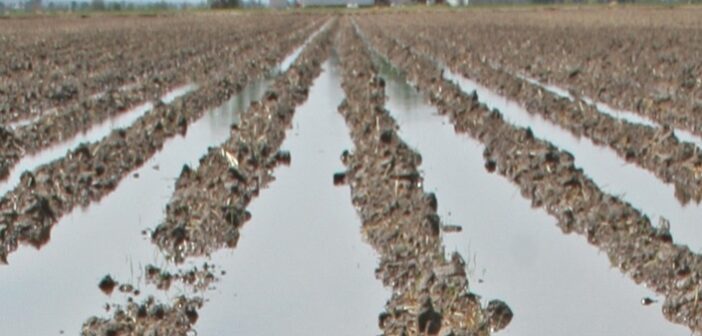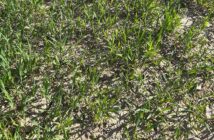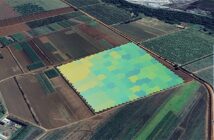Growers are being advised to test their soils to assess the impact of heavy rain throughout autumn and winter, compounded by the arrival of Storm Henk in January.
Eurofins Agro’s Shane Brewer suggests that waterlogged crops, or crops under flood water for more than 15 days will almost certainly be lost. However, the long-term damage to soil health can only be ascertained by testing regularly once the waters have subsided.
“Soil testing will identify the levels of bacteria, fungi and protozoa in the soil. Eurofins also offers suggestions for what can be put back into the soil which will improve the efficiency of fertiliser use and also help cultivation decision-making,” he notes.
The roots of plants under flood water will stop taking up nutrients, and methane will be produced in the soil as opposed to carbon dioxide. Ethylene can also build up in the plant roots, which can impact the germination of the next crop.
“Should a farm choose to abandon a winter crop and sow a spring crop, a soil test will be vital to understanding how that crop will need to be treated,” Mr Brewer added.
He said that microbial populations decline during flooding, and aerobic bacteria are replaced with anaerobic bacteria. This reduces oxygen in the soil and causes the earthworm population to drop.
“Flooding washes away topsoil that farmers have spent time and money improving. Topsoil contains the phosphorus, nitrogen and carbon that will help a new crop grow and, without it, farmers will need to understand what levels of inputs are needed to help soil recover,” he warns.
Soil compaction is also a concern. When hit by heavy rain, compacted soils are unable to absorb water leading to runoff, taking topsoil and nutrients with it.
“Deeper soil can absorb more rain, but in the UK we have large areas that have suffered years of compaction and lack the depth needed to cope with the sort of rain we have experienced this winter. To get the most out of compacted soil, testing will be required to help cultivation decisions such as whether to plough, if minimum tillage options are not deemed suitable,” Mr Brewer concludes.




